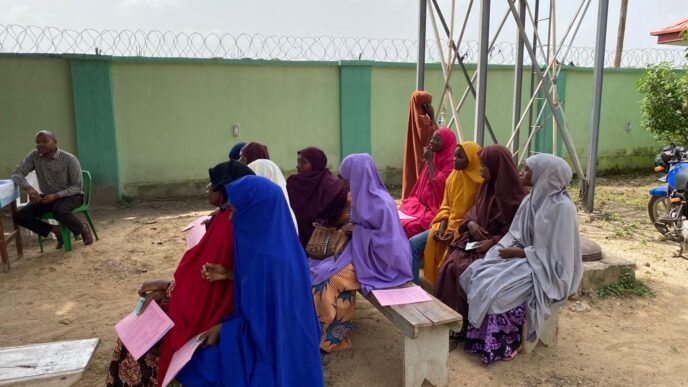BY SHERIFFDEEN FOLARANMI
On March 28, 2025, Uromi in Edo state became the scene of yet another tragic case of mob violence. Sixteen hunters, travelling from Port Harcourt to Kano with traditional Dane guns, were accused of being kidnappers by a vigilante group. Without trial, they were lynched and burned. Their charred remains tell the story of a nation where justice is often meted out not by the courts, but by gasoline and rage.
Only weeks before, two men in Lugbe, Abuja, suspected of being “one chance” criminals, were set ablaze while a crowd watched. In 2012, the infamous Aluu Four were beaten and burned while pleading for their lives. These are not isolated events—they are symptoms of a broken justice system.
Between 2012 and 2023, over 555 Nigerians were reportedly killed by mobs, according to Amnesty International. In many cases, police arrive too late, or not at all. Citizens, frustrated by weak institutions and growing insecurity, take matters into their own hands.
Advertisement
But jungle justice is not justice—it is a failure of governance. If Nigeria must escape this spiral, it must embrace a bold, tech-forward alternative: Artificial Intelligence.
The Case for AI in Nigerian Security
Nigeria’s insecurity problem has evolved. Bandits use encrypted messaging apps. Kidnappers change locations faster than police can respond. Meanwhile, we rely on reactive, analogue tools—chasing after crimes instead of preventing them.
Advertisement
This is where AI comes in. Globally, AI is being used to map crime hotspots, predict violent outbreaks, monitor social media for extremist threats, and automate surveillance in public spaces.
● In South Africa, AI-assisted cameras scan for criminal patterns in real-time.
● In Kenya, algorithms detect extremist recruitment language on platforms like X (formerly Twitter).
● In the United States, AI forecasts shooting-prone areas to pre-position law enforcement.
Advertisement
Nigeria can—and must—do the same.
AI tools can analyse keywords in local dialects, cross-reference biometric data, and predict conflict flashpoints in real-time. Facial recognition systems, when ethically deployed, can track suspects fleeing between states. Drones can provide aerial intelligence in rural areas plagued by banditry.
Addressing the risks: Privacy, oversight, and sovereignty
Sceptics are right to raise concerns. AI, without guardrails, can violate privacy and civil liberties. In the wrong hands, it can become a tool of oppression rather than protection. But inaction is deadlier. The absence of any effective security architecture has turned ordinary Nigerians into reluctant executioners.
Advertisement
What Nigeria needs is a framework, not fear:
● A clear national AI security policy, with defined limits and use cases.
Advertisement
● Domestic data storage laws, ensuring citizen data remains within Nigerian jurisdiction.
● An independent civilian oversight body to audit AI usage and prevent abuse.
Advertisement
● Capacity-building investments, especially in local AI talent and ethical tech design.
Moreover, Nigeria must be cautious in choosing its tech partners. While China may offer rapid deployment, long-term digital sovereignty depends on transparency, democratic values, and skills transfer.
Advertisement
A role for the national assembly and tech sector
The national assembly can take the lead by convening stakeholders to draft Nigeria’s first Security AI Bill. Civil society, technologists, and security agencies must be part of this conversation.
The federal government can also pilot AI surveillance on the Kaduna-Abuja highway and a few other security hotspots.
Local startups and tech hubs like CcHub, Data Science Nigeria, and AI-focused ventures should be empowered with funding and partnerships to create homegrown solutions.
This is not just a matter of innovation—it is a matter of national survival.
A final word
Jungle justice thrives when institutions collapse. But we must not accept mob violence as the price of insecurity. Nigeria stands at a crossroads: to remain trapped in cycles of violence, or to invest in systems that prevent it.
AI is not a silver bullet. But it is a powerful tool. If deployed responsibly, it can help rebuild public trust, improve response times, and deter crime before it starts. The mob’s machete is not the answer. Technology, backed by justice and ethics, is. Of course, AI alone won’t fix Nigeria’s security challenges—but without it, even the best police reforms will fail in today’s digital crime wave.
Sheriffdeen Folaranmi is a teaching assistant and PhD student at the Global Studies Department of the University of Massachusetts. Folaranmi can be contacted via [email protected]
Views expressed by contributors are strictly personal and not of TheCable.










